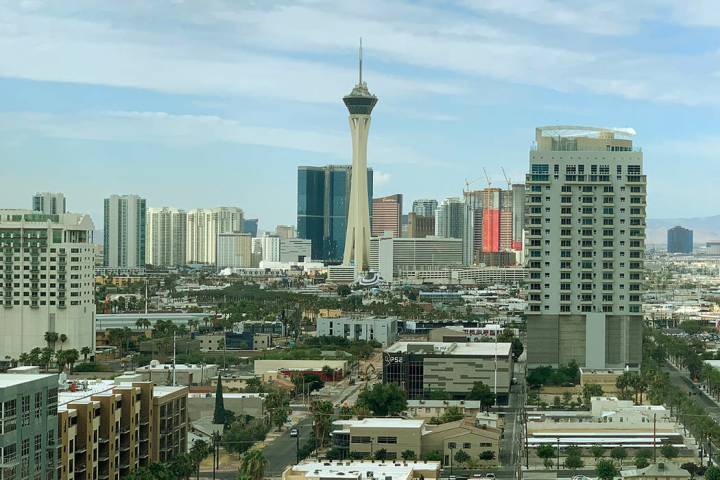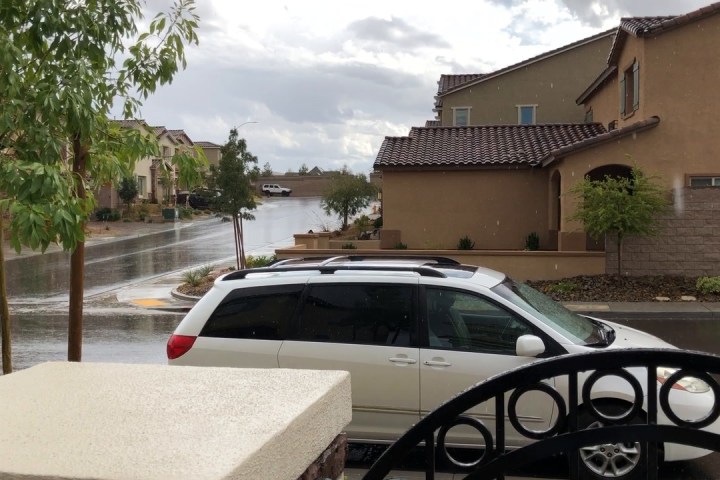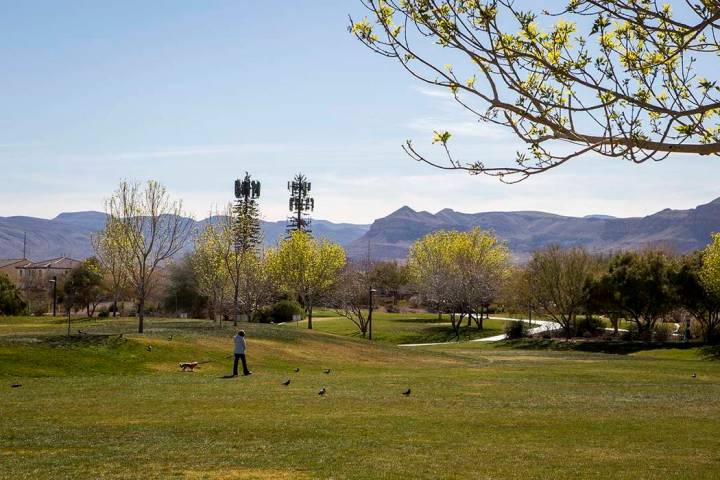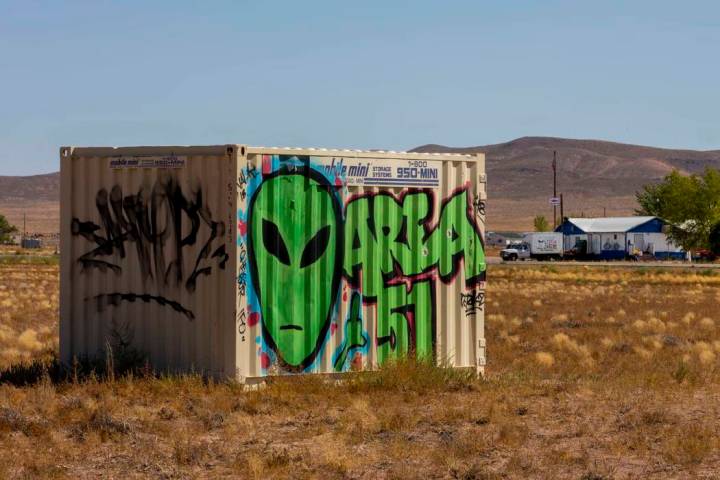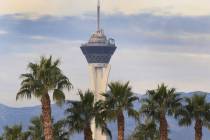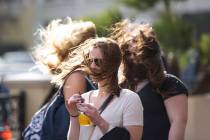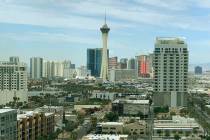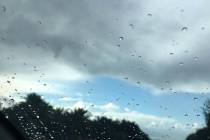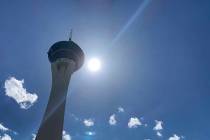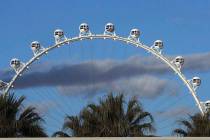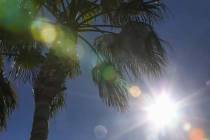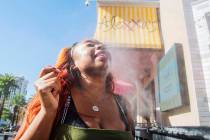Temperatures are expected to gradually drop in the Las Vegas Valley through the weekend, which is expected to be windy, according to the National Weather Service.
mc-weather
McCarran International Airport got .24 inch of rain, the valley’s wettest day since May 10. Monday broke the record for the date, according to National Weather Service meteorologist Trevor Boucher.
Sunday marks the last day of summer and the end of Las Vegas’ fourth hottest and fourth dryest summer on record.
After a cool Saturday, temperatures are expected to hover around normal for this time of year over the next few days in the Las Vegas Valley, according to the National Weather Service.
If you’re hoping to spot a UFO this weekend, Mother Nature is on your side.
Temperatures could dip below the 90s this week as fall weather brings gusty winds to the Las Vegas Valley, the National Weather Service said.
The Las Vegas Valley is in for a fire weather watch on Monday, with dry conditions, low humidity and wind gusts up to 35 mph.
Temperatures in the Las Vegas Valley will stay below 100 through the week, according to the National Weather Service.
Above average temperatures are expected to continue through Saturday, with a high of 105, but relief is expected starting Sunday.
Southern Nevada residents have a 20% chance of seeing scattered showers Thursday before skies clear and temperatures begin to fall.
Wednesday also saw brief showers that left trace amounts of rainfall throughout the valley, and there’s a 20 percent chance for rain overnight, meteorologist John Adair said.
Wind gusts rocked the valley last night but will be absent for Labor Day, leaving a slight chance of rain showers and thunderstorms throughout the day.
There’s a 20 percent chance for showers and thunderstorms on Labor Day. Winds will stay calm through the day but should increase at night, gusting up to 20 mph.
The National Weather Service has extended an excessive heat warning through Sunday night, with high temperatures expected to reach 106 to 110 degrees.
Relief from a long week of excessive heat will likely arrive on Labor Day, says the National Weather Service.








